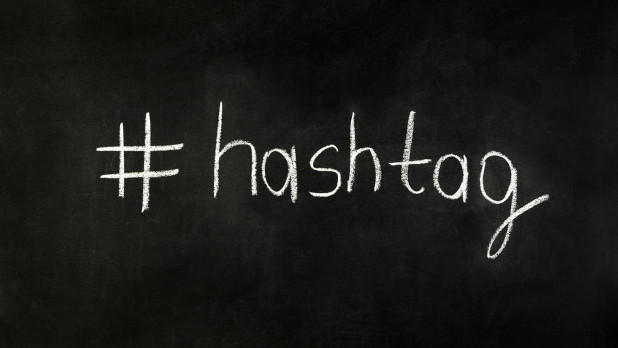The Ghanaian Child: Does Our Societal Upbringing Stifle Critical Thinking
We are young people— thus, many Ghanaian adults in our lives assume we don’t think as far as they do. They imagine that our youthful and vibrant nature is often an indicator of inexperience and naivety; that we don’t stare intently at our own lives, wondering about our own futures or our identities as Africans.
As a child, I had much to think about. I always seemed to be deep in thought about my own emotions and self-exploration. I used to ask the questions: would I die a happy man? Does God have a weakness? Is His weakness ‘love’? Is love real? Is God real??…I used to engage myself in thoughts about the unmentionable things in my society. At one time, I jokingly thought this was a disease.
Now that I’m 20, I realise that when I was a child, I was different. It’s not just one of those things that I’d say in order to feel special or unique. I was the boy that sat on his own and keenly watched an empty basketball court, reflecting on everything grossly unrelated to the sport. My mind consumed me; hundreds of questions and scenarios played on my imagination constantly, every day since I can remember. This is the one interesting thing about my childhood that puzzles me today.
Was I a critical thinker? …I guess that’s not the important question. Rather, the question may be: Am I a critical thinker now? Or better yet, what does it mean to be a critical thinker? I don’t know everything, but I do know what I want to question first. So allow me to start from the place I know best, and to ask you all: Does Ghana’s societal upbringing stifle critical thinking?
In Ghana, children shoulder the pressure of conforming to the stereotypical “Ghanaian” child: one that must show absolute obedience to their parents and all authorities. This includes aunties, uncles, teachers, pastors, the neighbour, the local gambler and even the family goat that is older than you. The child must be obedient, of good behaviour, never question his/her superiors, be religious and exhibit meekness. Now relax, I don’t believe that these characteristics are inherently wrong in any way, but I really wonder: Does the pressure to conform to this stereotype hinder a child’s growth, especially in the areas of self-expression and critical thinking?
When we look at the things we were engaged in as children, did the nature of these activities lend themselves to fostering critical thinking? At school, the Ghanaian Education Service (GES) poured out a curriculum designed for us to retain knowledge as if we were ducks being fattened for the slaughter. The repetitive spoon-feeding of LARGE buckets of knowledge into our brains did well to make us great memorisers of knowledge, but not so much great appliers.
Children are beaten when they fail or get answers wrong, hence propagating the incentive to memorise knowledge, rather than understand it. I find it sad to believe that one of the worst scenarios facing Ghanaian formal education today, is that those who are fortunate enough to be able to complete school, receive an education that may have been uninspiring in fostering critical thinking. As kids, we memorised that our heads were used for carrying buckets of water, and not for intellectual thought. We memorised that colonisation was good for us, because we gained the opportunity to be introduced to Christianity. And yet, we wonder why when many Ghanaians become adults, they are stuck in their ways of thinking and eventually conflict with a younger generation that has been exposed to so much more than they ever have. Is it because they themselves were all pressured to follow this standard?
In church, children are taught to accept stories and fables of how our world came to be. They are taught to believe entirely in the notions and speculations of the excessively faithful. In many religious institutions, the theory of evolution and the act of critical questioning are not only discouraged, but are wholly rejected. The all-too-common statements such as “It is not our place to question God” and “We cannot understand His ways” are symbolic of the social disregard for the child’s development of curiosity and critical thinking. Rather than seek to raise a child who would be able to assess and determine the good and bad aspects of a particular situation they find themselves in, far too many Ghanaians would rather insist on subjecting the child to massive indoctrination of what is right and wrong; even if such moral judgments no longer apply in our global society today.
Introspective discussions that can foster such thinking are rarely treated in schools or homes— Children of the inquisitive nature, who press on the off-limit topics, such as sex or even homosexuality, are sometimes the unfortunate bearers of certain negative stigmas (disrespectful, stubborn, bad). Resultantly, our children are pushed into accepting what is, instead of reasoning it out for themselves. They grow up in perpetual ignorance and are rarely ever challenged to escape this ignorance. By the time they are old enough to leave the safety and comforts of their country or parents’ home, they have already been subjected to years of repetitive spoon-feeding that does very little in the critical outlook of things.
I do not suggest that we, as a people, forgo the values that we honour most such as respect or obedience…but we should be open to exposing our children to more open-minded forms of thinking. We should ask them questions so that they may ponder and seek answers. We should teach our children to inquire, to explore not only themselves but the world also, with all it has to offer. Our children must not be left to raise themselves, for a parent’s good teaching and influence helps bring balance to a child’s psyche.
But they should be taught to question and reason, and to relentlessly seek understanding about the things they see around them. We should push their imaginations further through exposure to more arts, poetry, science, and feats of engineering, history and so much more…not superstition. The beauty of this is that we would not only help develop more logical thinkers, innovators and great leaders, but we would also see the birth of a different kind of “Ghanaian child”— one that could be far more inspirational in expanding society’s paradigms on good character and critical thinking.
This article was written and submitted to BrutallyUncensored.Com by AK. William | You can visit his Blog at www.akwilliam.com




